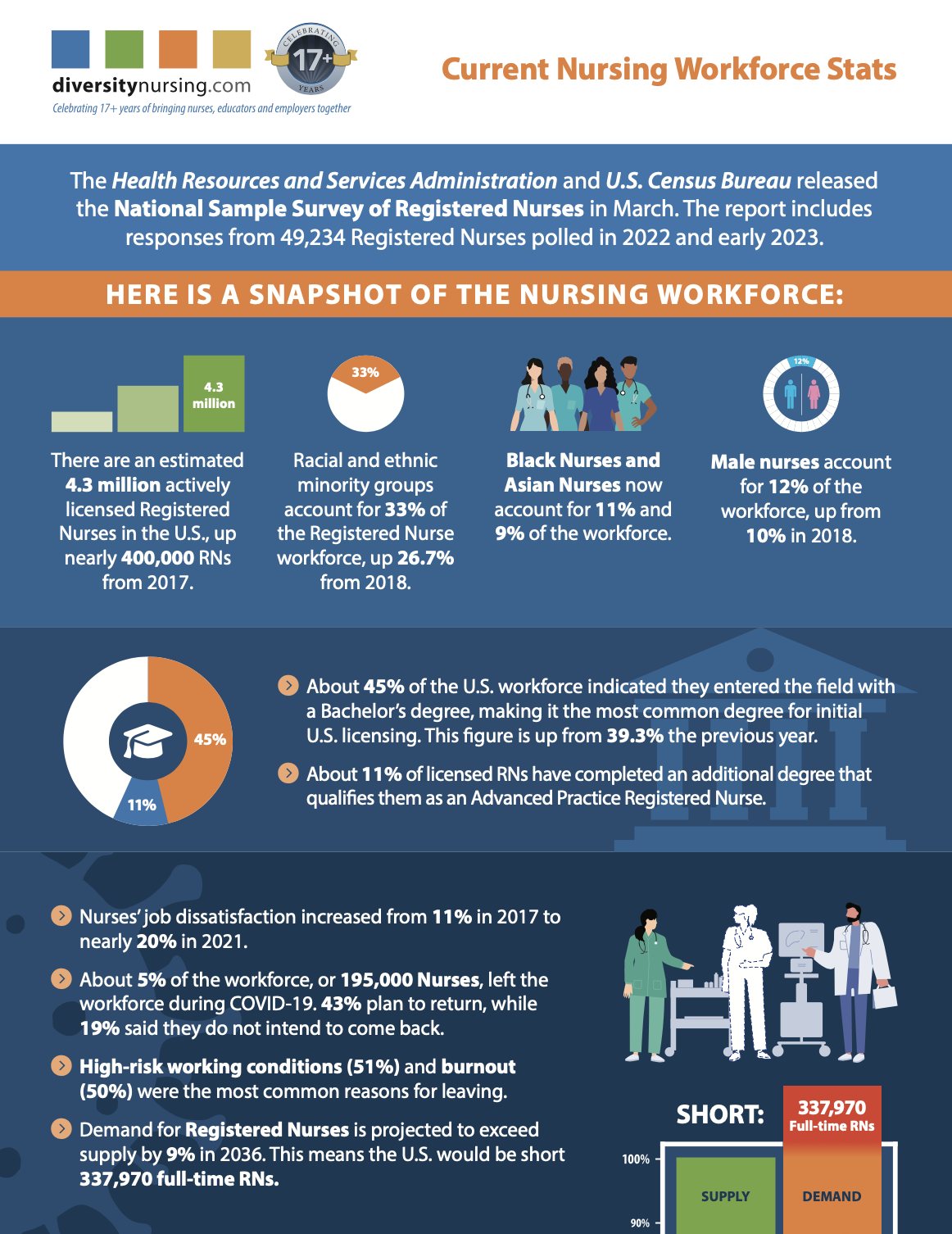For the 24th year in a row, Nurses have been rated as the most honest and ethical profession, a remarkable streak of trust that speaks volumes about the heart of the nursing profession.
In the most recent Gallup poll released January 12, 75% of Americans say Nurses have “very high” or “high” honesty and ethical standards, more than any other profession surveyed. In comparison, medical Doctors and Pharmacists earned majority positive ratings (57% and 53%, respectively), but still fell well behind Nurses.
A Legacy of Trust
Nurses first appeared on Gallup’s honesty and ethics list in 1999, and with one rare exception, firefighters in 2001 after the 9/11 attacks, they’ve held the top spot ever since.
This long-running recognition reflects how deeply the public values Nurses’ commitment to patient care. Whether in hospitals, clinics, or community settings, Nurses are often the professionals people see most frequently during vulnerable moments, earning their trust through compassion, accountability, and ethical practice.
Ratings Have Shifted Since the Pandemic
Interestingly, while Nurses remain the top-ranked profession for ethical standards, their score in this latest poll is slightly lower than recent highs. The current 75% is near the lower end of their historical range and about 14 percentage points below the record high seen in 2020 during the height of the COVID-19 pandemic.
Other professions tracked in the poll also showed declines from pandemic-era peaks, indicating that overall public confidence across many fields has softened in recent years.
How Nurses Compare
In contrast to Nurses’ strong rating:
-
Medical Doctors and Pharmacists remain respected but notably behind in honesty and ethics scores.
-
Professions such as telemarketers, members of Congress, and car salespeople ranked at the bottom with very low “high ethics” ratings.
Only four professions, including Nurses, Veterans, medical Doctors, and Pharmacists, earned majority positive ratings for high ethical standards.
Why This Matters
For Nurses, this poll isn’t just a statistic, it’s a reflection of the everyday realities of the profession:
-
Ethical responsibility is core to nursing practice, embodied in codes of ethics that guide decision-making and patient advocacy.
-
Nurses often serve as the primary point of contact for patients and families, building trust through communication, care, and consistency.
-
That trust matters, it’s foundational to effective patient care, improved outcomes, and strong therapeutic relationships.
This year’s Gallup results remind us that, even in complex times, the nursing profession continues to stand out in the public mind as a beacon of ethics and honesty. That reputation has been forged over decades of compassionate care, and it endures even when public confidence in other professions wavers.



 May is mental health awareness month, a time to
May is mental health awareness month, a time to  Healthcare should be accessible to everyone regardless of socioeconomic status, age, gender, race, or ethnicity. Unfortunately, many people across the nation struggle to access affordable and reliable healthcare. Health equity can only be achieved when every person, regardless of the situation, has a fair and equal opportunity to be as healthy as possible.
Healthcare should be accessible to everyone regardless of socioeconomic status, age, gender, race, or ethnicity. Unfortunately, many people across the nation struggle to access affordable and reliable healthcare. Health equity can only be achieved when every person, regardless of the situation, has a fair and equal opportunity to be as healthy as possible.